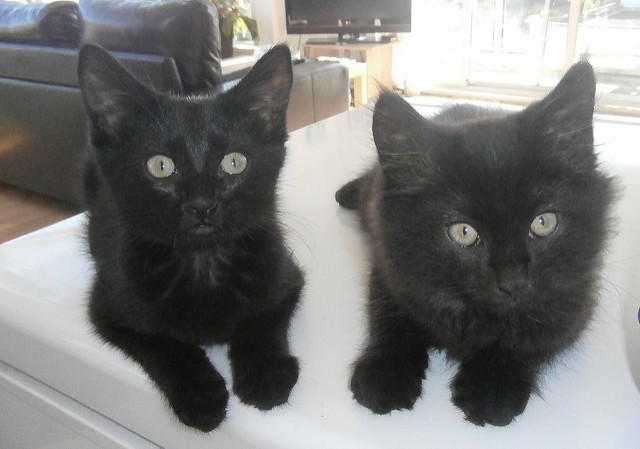I’m sure I don’t have to tell you how amazing kittens are; it’s obvious just from looking at them. They’re furry little balls of overwhelming cuteness, and adopting one into your family can instantly fill your home with sweetness and fun. While you’ll probably want your new baby to be with you immediately and all of the time, it can benefit both you and your kitten to quarantine her for a few days, especially if you live with other animals.
Quarantining doesn’t have to be as scary as it sounds. It simply means keeping your new kitten in a room (like a bedroom or bathroom) with a door that separates her from the rest of your house. The room should be cozy and contain all of her essentials, including food, fresh water, a bed, toys, and a scratching post. Here are five great reasons to quarantine.

#1 – Test results aren’t instantaneous
When you adopt a new kitten, it’s important to screen her for common ailments like FIV and FeLV. If she tests positive for either, you’ll want to know as soon as possible so you can make a game plan with your veterinarian. Understanding how a particular virus works is essential to providing a safe and healthy home. Certain viruses like FeLV can also be highly contagious to other cats, and you will want to make sure your new kitten tests negative before potentially exposing another resident kitty to it. Unfortunately, it can take several days to get test results back. Quarantining your new kitten until her health status is confirmed will keep everyone safer.
5 Reasons To Consider Adopting An FIV+ Cat
10 Symptoms Of Feline Immunodeficiency Virus (FIV)

#2 – Treat fleas
Fleas are no joke. An adult female flea can lay 2,000 eggs during her short life! If your new kitten has fleas, you can save yourself a lot of trouble by quarantining her to a confined space until you’ve got the flea problem under control.
Does Your Cat Have Fleas? Here’s What You Need To Know
17 Must-Know Flea Facts To Prepare You For Summer

#3 – Give her a safe space to adjust to the sounds and smells of your home
Cats– even kittens– have very strong senses, so being put into a new home can be overwhelming. Things that seem unthreatening to you– the food you cook, the television shows you watch, the footsteps of your upstairs neighbor– can feel scary to your kitten. Quarantining your kitten for a couple days can give her a small and familiar space to feel safe in while she takes in all of the new sounds and smells of your home.
How Do Your Cat’s Five Senses Compare To Your Own?
7 Ways Cats Use Their Senses Of Smell
QUIZ: How Well Do You Understand Your Cat’s Senses?

#4 – Litter training will be easier
Using a litter box will be somewhat instinctual for your new kitten, but mistakes and messes aren’t uncommon while kittens learn all the ins and outs of litter box etiquette. Quarantining her will keep her close to the box in case the need to go sneaks up on her, and it’ll make her messes easier to locate in case she misses.
7 Tips For Litter Training Kittens
Confused Kitten Learning To Use Litter Box Gets Creative

#5 – Proper introductions to other animals
Even if you already know your cat is healthy when you bring her home (many shelters and rescue organizations screen their kittens for FIV and FeLV before making them eligible for adoption), a kitten should never be dropped into a home with another cat without taking the time for a proper introduction. Cats are territorial by nature, and how you choose to introduce your cat to a new kitten can set the standard for how they relate to each other for the rest of their lives. Proper introductions help lay the groundwork for a good lifelong relationship. Quarantining your new kitten will help with this transition and start your cats off on the right paw.
Ask A Vet: How Do I Introduce My Resident Cat To My New Kitten?
